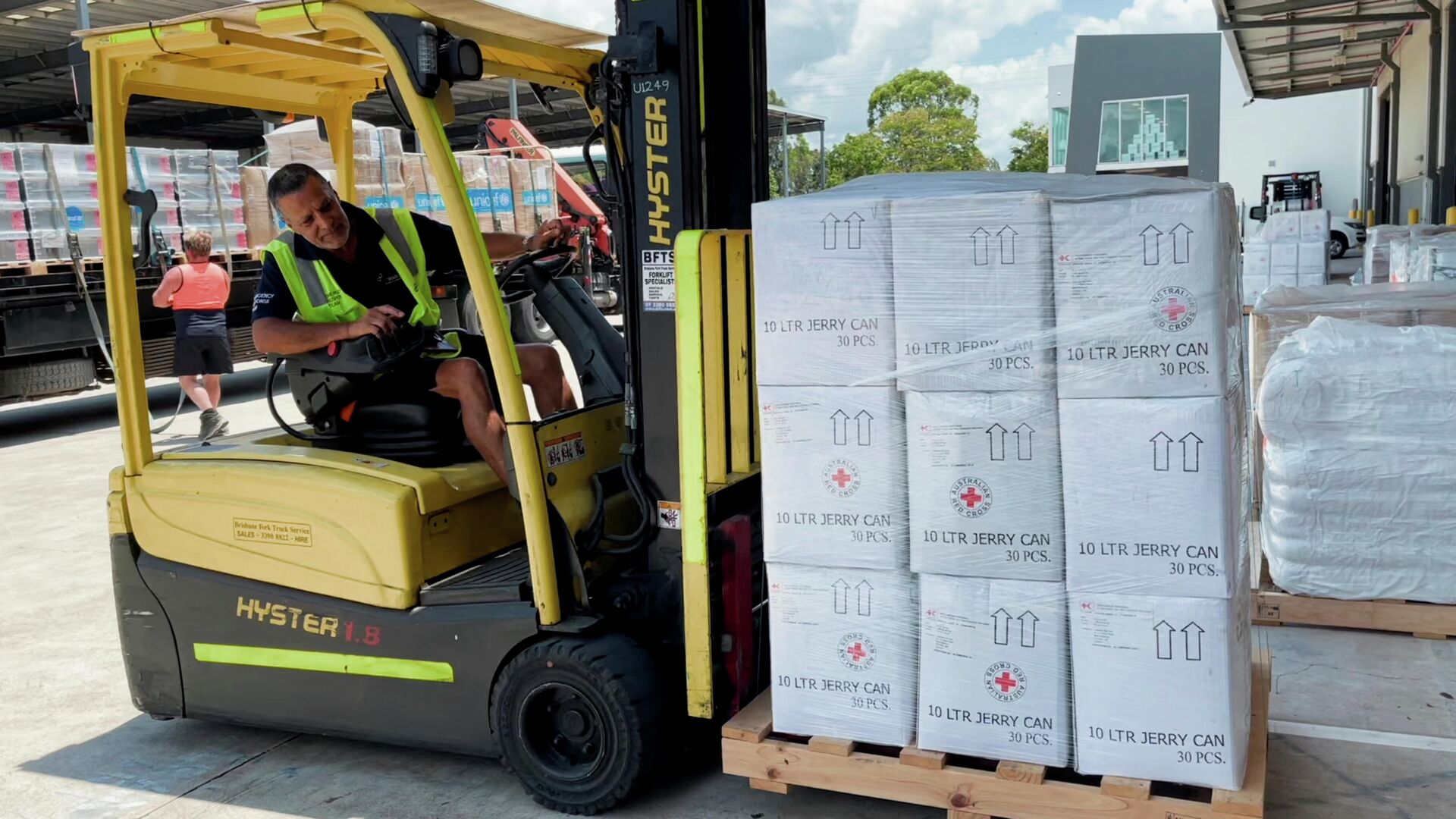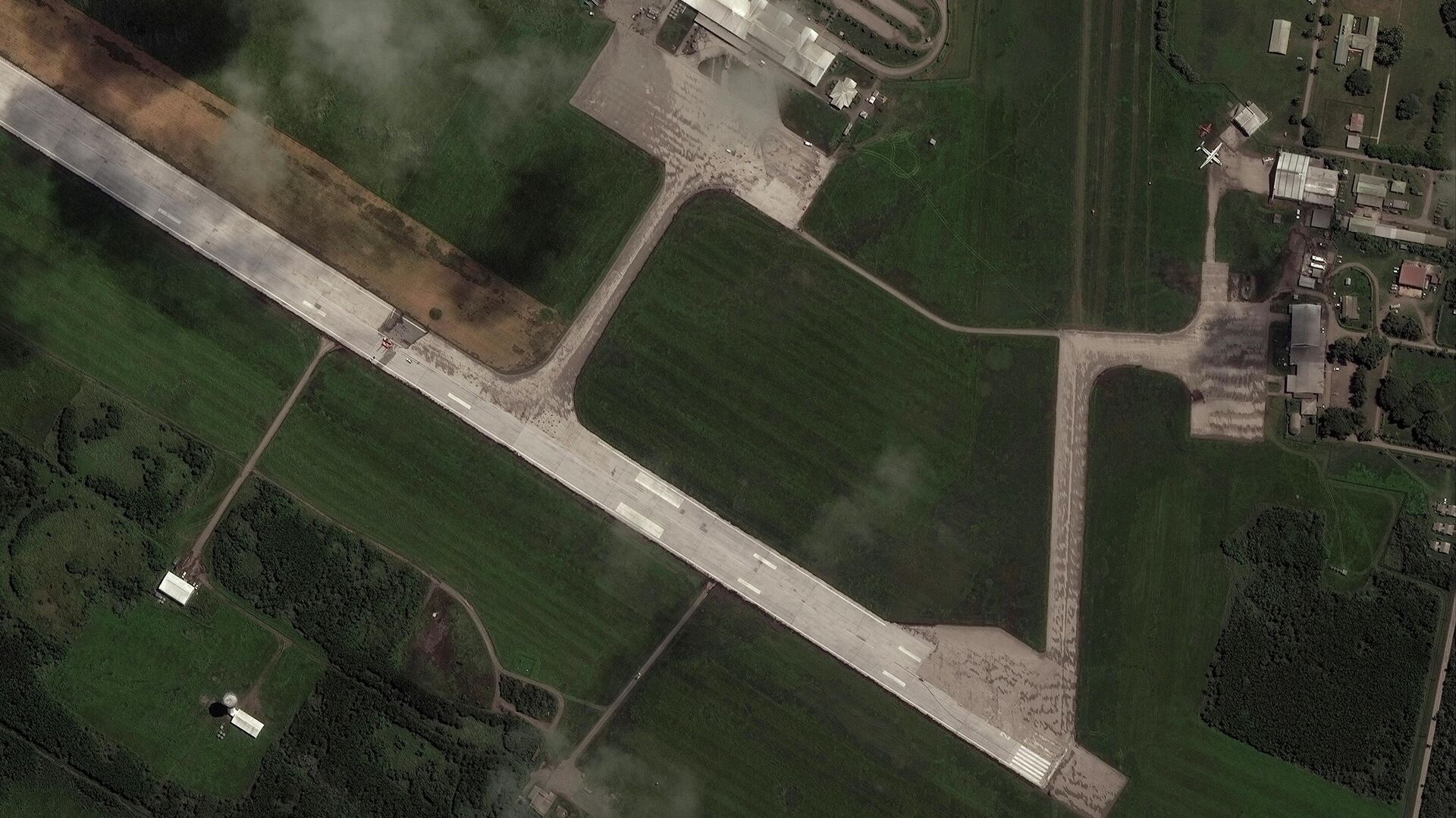Aid Planes Depart for Tonga After Main Runway Cleared of Volcanic Ash as Food, Water Shortages Mount
21:39 GMT 19.01.2022 (Updated: 21:40 GMT 19.01.2022)
Subscribe
The massive volcanic eruption and corresponding tsunami on Sunday have imperiled the Pacific island nation of Tonga after wiping out the country’s crops and tainting its water supplies with salt water. However, with its only airport covered in ash, aid has been forced to travel by sea.
The International Federation of the Red Cross reported on Tuesday that its teams had made contact with authorities on several of Tonga’s islands, including Mango, Fonoifua and Namuka, where homes were completely wiped out by the blast.
“Water supplies across Tonga have been severely impacted by ashfall and saltwater from the tsunami. It’s vital to restore access to safe drinking water as there is a mounting risk of diseases such as cholera and diarrhea,” the IFRC said in a news release.
Lord Fakafanua, head of Tonga’s unicameral legislature, told Pacific Media Network on Wednesday that “All agriculture is ruined and I hear the farmers have been reassured by the Prime Minister that they will be taken care of, but it’s very sad to hear, so on top of the water that we need in Tonga, it seems that we’ll be facing a food shortage.”
“Farmers spend a lot of money and capital and time in preparing their crops and it’s also one of the major exports of Tonga,” he added. Agricultural products constitute the majority of Tonga’s exports, with top products including cassava, squash, coconuts, bananas, palm oil and vanilla beans. The United States buys 37.7% of Tonga’s exports by itself.

Supplies intended as relief material are prepared to be sent to Tonga by the Australian Red Cross, in Brisbane, Queensland, Australia January 19, 2022 in this still image taken from video obtained by Reuters.
The Saturday evening eruption of the Hunga Tonga Hunga Ha’apai volcano, about 450 miles southeast of Fiji, sent a 49-foot-high tsunami washing over many of the nation’s islands, with smaller waves impacting as far away as Japan, California, and Alaska. The US space agency NASA estimated its explosive power at "no larger than 5-6 megatons of TNT equivalent," or equivalent to one of the more powerful thermonuclear bombs built by the US and USSR during the Cold War.
The ash that coated Tonga’s fields has also buried the runway at Fua'amotu International Airport on the main island of Tongatapu in about 20 millimeters of volcanic dust, which workers have labored for days to remove so that aid aircraft can land. A World Health Organization official on the island told AFP on Wednesday that the airstrip had finally been cleared, and Lord Fakafanua indicated that air force flights from Australia and New Zealand scheduled for Thursday and Friday could go ahead.
A New Zealand Defense Force C-130 Hercules loaded with water, hygiene kits, and other goods has been kept on standby to depart the moment Tonga’s airstrip is clear, and several Australian transport aircraft are ready to go, as well. Both nations are also sending several warships loaded with relief supplies, including the helicopter carrier HMAS Adelaide. The HMNZS Aotearoa also carries a desalination plant capable of turning 70,000 liters of salty seawater into drinking water each day.
Other nations have pledged aid as well, including the US, whose embassy announced $100,000 in aid, and China, whose Foreign Ministry said on Wednesday it would deliver fresh drinking water, food, and protective equipment, as well as rescue devices, once flying to the country was again possible.
However, with all the aid ships and planes en route, Tongans have yet another fear: the island nation is one of the few to have successfully avoided a COVID-19 outbreak, with its first case being recorded last November, and aid workers could bring the virus with them. However, according to health data, 61% of the country’s 105,000 people have been fully vaccinated.

